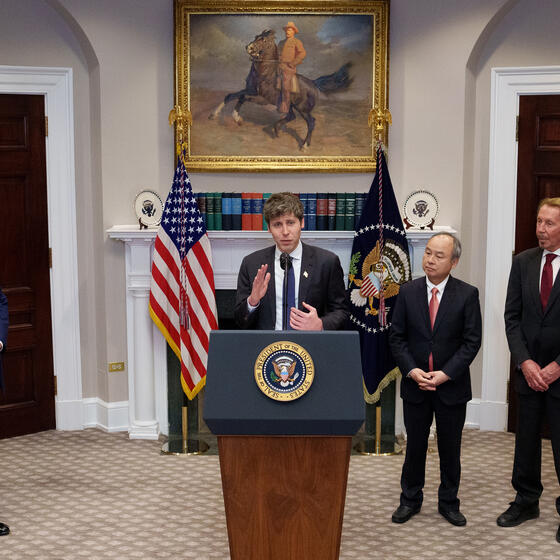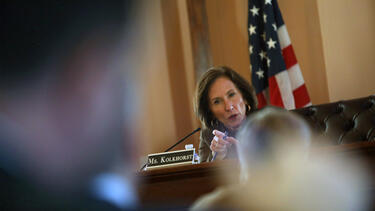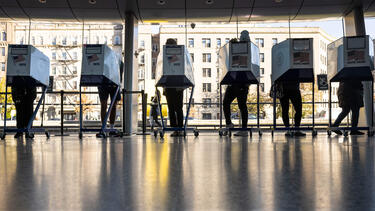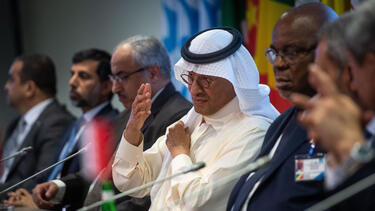Politics and Policy
What Happened When Five AI Models Fact-Checked Trump
President Donald Trump is an AI booster, write Yale SOM’s Jeffrey Sonnenfeld and co-authors Stephen Henriques and Steven Tian. So they thought it was fair to ask the leading chatbots to evaluate some of Trump’s frequently repeated claims.

A Year after the Invasion, the Russian Economy Is Self-Immolating
Economic pressure and a talent drain are pushing Russia into permanent irrelevance, write Yale SOM’s Jeffrey Sonnenfeld and Steven Tian.

The Balloons Signal a New Age of Mass Surveillance
Prof. Paul Bracken, an expert in global competition and strategy, says these encounters reveal an urgent need for citizens and governments to catch up on how much we’re already being spied on.

Will the Backlash from the Right Slow ESG Investing?
A string of Republican-led states have pulled funds from firms that use environmental, social, and governance criteria in making investments. We asked Yale SOM’s Todd Cort what the political backlash means for the future of ESG investing.

Don’t Expect Pollsters to Break Their Losing Streak
Polls predicted a “red wave,” but Democrats held the Senate and fought to a near-draw in the House. Yale SOM’s Jeffrey Sonnenfeld and Steven Tian write that after a series of polling misses, it’s time to acknowledge the fundamental flaws in pollsters’ approach.

The Good News You Aren’t Hearing about U.S. Energy Policy
Yale SOM’s Jeffrey Sonnenfeld and Steven Tian write that energy industry analysts are getting it wrong about the Biden administration’s progress on energy independence and supply.

Could Russia Really Go Nuclear?
We asked Paul Bracken, an expert in nuclear strategy, how this “unthinkable” scenario would play out.

The Role of Business after Roe
In the wake of the Supreme Court’s Dobbs v. Jackson Women’s Health Organization decision, access to reproductive healthcare varies widely from state to state. In a recent Yale SOM conversation, alumni and faculty discussed how businesses can advocate for the preservation of that access on behalf of their employees, customers, and other stakeholders.

Saudi Arabia’s Sabotage of the Economy Will Backfire
With its surprise cut in oil production, write Yale SOM’s Jeffrey Sonnenfeld and Steven Tian and Congressman Ro Khanna LAW ’01, Saudi Arabia has chosen to side with the Russian war machine.

What’s the Right Price for Russia’s Oil?
Negotiation expert Prof. Barry Nalebuff argues that setting the price cap either too high or too low could lead to failure and defeat the effort to make Putin pay for his aggression.

Are Student Loans Worth It?
We asked SOM’s Paul Goldsmith-Pinkham, whose current work focuses on assessing the costs and benefits of debtor protection policies and understanding the role that consumer debt plays in the macroeconomy, to put President Biden’s decision to forgive student debt in context.
